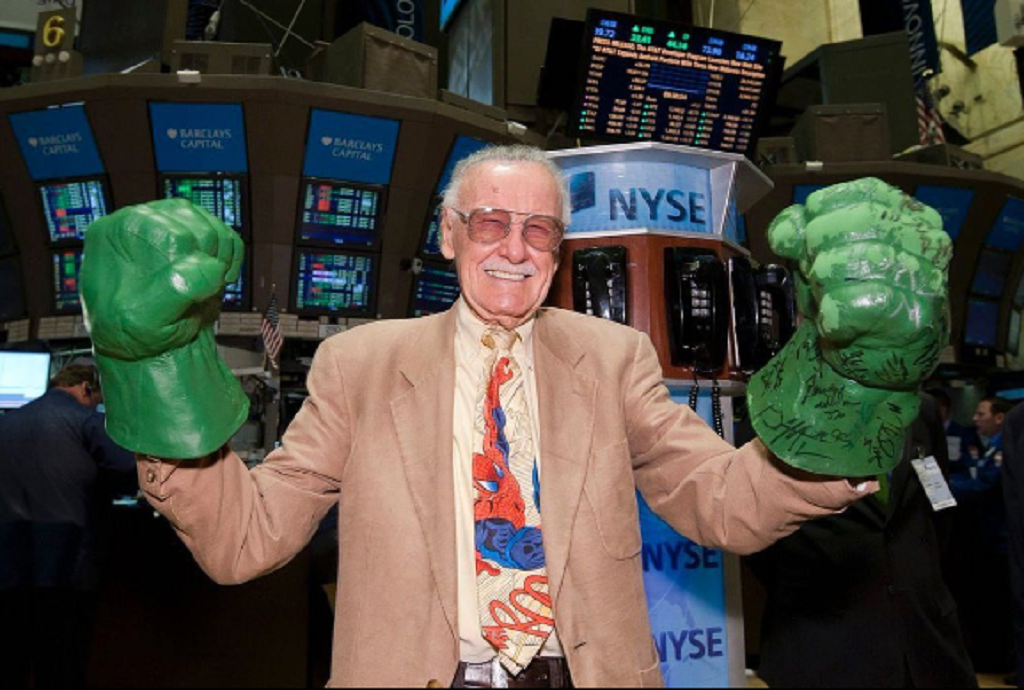There was prompting speculation about Stan Lee’s Dementia, with reports and discussions emerging regarding his cognitive health and memory loss.
Stan Lee was a highly influential figure in the world of comic books. His career began at Timely Comics, a family-run business that eventually evolved into Marvel Comics, under which Lee played a pivotal role in shaping the industry.
Throughout his career, Lee collaborated with talented artists like Steve Ditko and Jack Kirby to co-create some of the most iconic and beloved superheroes.
Spider-Man, the X-Men, Iron Man, Thor, the Hulk, and many others were brought to life through Lee’s creative leadership.
Introducing these characters in the 1960s revolutionized superhero comics by adopting a more relatable and humanistic approach.
In the 1970s, he challenged the Comics Code Authority’s restrictions, prompting policy changes that allowed for more mature and complex storytelling.
In the 1980s, Lee ventured into expanding Marvel properties beyond the comics, venturing into various media platforms.
Lee’s impact on the comic book industry cannot be overstated. His contributions earned him numerous accolades, including induction into the Will Eisner Award Hall of Fame in 1994 and the Jack Kirby Hall of Fame in 1995.
In 2008, the NEA (National Endowment for the Arts) honored him with the National Medal of Arts. Even in his later years, Lee remained engaged in creative endeavors and projects until his passing in 2018.
Also Read: Martin Freeman Wife: Was He Married To Amanda Abbington? Son Joe Freeman
Stan Lee Dementia And Cancer: Health Before Death
In the period leading up to Stan Lee’s death on November 12, 2018, his health had been a matter of concern.
Lee had experienced health issues earlier in the year, including a hospitalization for pneumonia in February. These health challenges had understandably raised questions about his well-being.
Reports indicate that Lee’s cause of death was cardiac arrest with congestive heart failure and respiratory failure, with aspiration pneumonia listed as a contributing factor.
There is no substantial evidence to suggest that he had dementia or Cancer before his passing. It’s essential to rely on verified information and avoid spreading unsubstantiated claims or rumors.

Roy Thomas, who had visited Lee shortly before his death, mentioned that Lee was still enthusiastic about making cameo appearances in films and TV shows.
Although his health may have declined, Lee’s dedication to his craft and love for engaging with fans remained evident.
Ultimately, Stan Lee’s passing marked the end of an era for the comic book industry and left a void still felt by fans worldwide.
His remarkable contributions to the world of superheroes and his enduring legacy as a creative force continue to inspire generations of artists, writers, and fans alike.
Stan Lee Early Life and Family Explored
Stanley Martin Lieber, known as Stan Lee, was born on December 28, 1922, to Celia and Jack Lieber, Jewish immigrants from Romania.
In a Jewish household, Lee’s upbringing was influenced by his parents’ background. Despite his Jewish heritage, Lee expressed uncertainty about his belief in God, stating that he didn’t know.
Lee’s family faced financial struggles during the Great Depression and moved to Washington Heights in Manhattan.
Lee had a younger brother named Larry, and their childhood home was a modest apartment on University Avenue in The Bronx.

Growing up, Lee developed a love for books and movies, particularly admiring the heroic roles played by actor Errol Flynn. He credited “The Scarlet Pimpernel” as the first superhero character that captured his imagination.
Attending DeWitt Clinton High School, Lee discovered his passion for writing and aspired to become a novelist.
Lee graduated from high school at sixteen and a half, and he joined the WPA Federal Theatre Project, gaining early exposure to the world of theater and entertainment.
These early experiences would shape his creative journey and lay the foundation for his future contributions to the comic book industry.
You May Also Like: What Is Arnold Oceng Ethnicity? Parents And Wife

